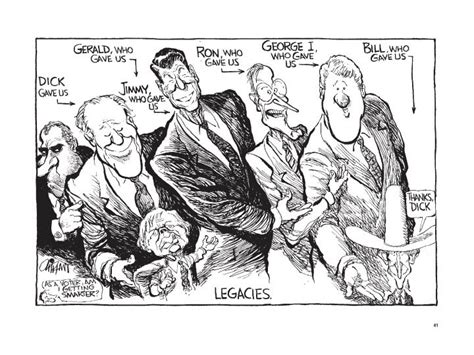A Quote by Harold Evans
[The web] is going to end up being a tremendous advantage, providing we can work out the financial structure. I think we’ll see newspapers survive, being printed at home... Or you’ll have a local print shop, so that rather than waiting for the newspapers to arrive by truck, which is 30 percent at least of a newspaper’s cost, you’ll go in and push a button, and it will take your dollar bills without anyone having to be there. And it will print the newspaper for you while you wait. It will take seven minutes. There’s a terrific future for print in my view and it gives me great heart.
Quote Topics
Advantage
Anyone
Arrive
Being
Bills
Button
Cost
Dollar
Dollar Bills
End
Financial
Future
Gives
Go
Going
Great
Having
Heart
Home
Least
Local
Me
Minutes
Newspaper
Newspapers
Out
Percent
Print
Printed
Providing
Push
Rather
See
Seven
Shop
Structure
Survive
Take
Terrific
Than
Think
Tremendous
Truck
Up
View
Wait
Waiting
Web
Which
While
Will
Without
Work
Work Out
Your
Related Quotes
Distinguish between the work and the job title. When I was leaving school in the early 1970s, many people wanted to be journalists, carrying out investigative reporting for print newspapers. Print newspapers may not exist in twenty years. But good thinking and good writing about issues that need to be reported and investigated will always be needed; but where this happens, what it is called, and who pays for it may be quite different than could have been envisioned by the great journalists of the past.
Newspapers are technologically obsolete. In the days of instant electronic communications, its crazy to have to print these newspapers at a central plant and deliver them by truck. They're the biggest problem with our solid-waste disposal. And the news you get is a day old. You can get it off the Internet instantaneously for a fraction of the cost.
Journalism is a great profession. It's complicated now. People talk about the demise of investigative reporting. I was a judge in some award contest recently, and the stuff that is being done by major newspapers, and local, regional papers around the country, is great. Newspapers play an amazing role in our society, and I still think they are important. I'm sorry newspaper circulation is down. Ultimately, the importance of newspapers can't be replaced.
As people get their opinions so largely from the newspapers they read, the corruption of the schools would not matter so much if the Press were free. But the Press is not free. As it costs at least a quarter of a million of money to establish a daily newspaper in London, the newspapers are owned by rich men. And they depend on the advertisements of other rich men. Editors and journalists who express opinions in print that are opposed to the interests of the rich are dismissed and replaced by subservient ones.
Computer chips will cost about a penny. That's the cost of scrap paper. The Internet will be basically for free and it will be inside our contact lens. When we blink, we will go online. When we see somebody that we don't recognize, our contact lens will identify who they are, print out their biography in your contact lens and translate, if they're speaking Chinese, into English with subtitles as they speak.
































